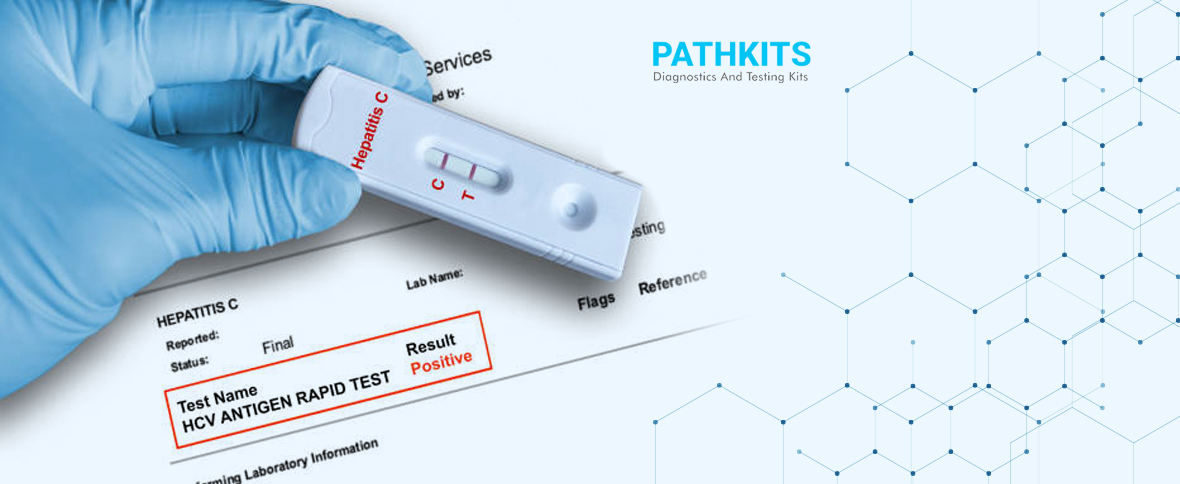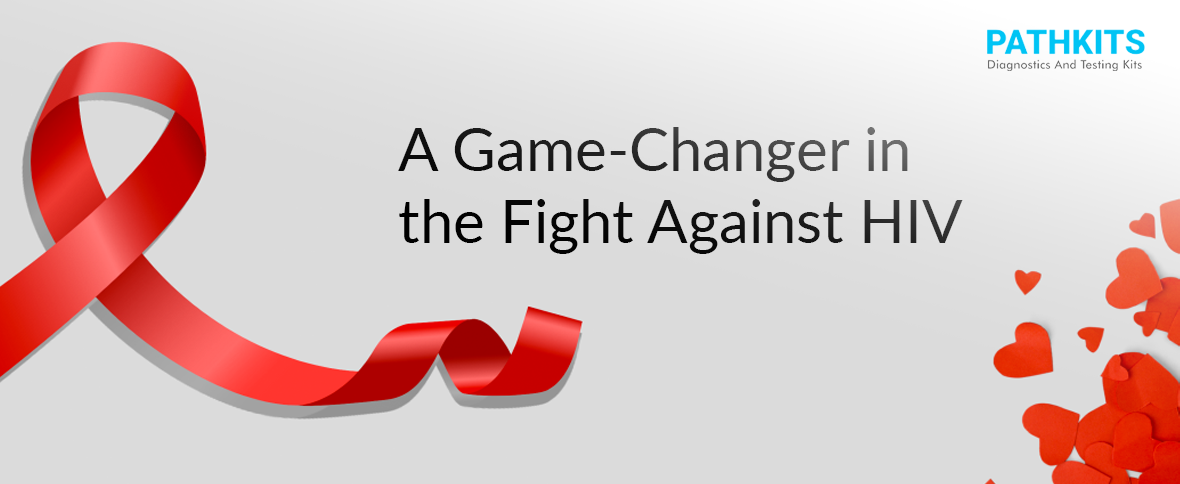Introduction
Hepatitis C is a viral infection that affects millions of people worldwide. Timely and accurate diagnosis is crucial for effective treatment and management of this condition. In recent years, HCV rapid test kits have emerged as a valuable tool for diagnosing Hepatitis C Virus (HCV) infection. These kits offer several advantages over traditional diagnostic methods, making them an attractive option for healthcare providers and patients alike
Understanding Hepatitis C Virus (HCV)
HCV is a bloodborne virus that primarily affects the liver. It can lead to chronic infection, which, if left untreated, may progress to liver cirrhosis, liver cancer, or liver failure. HCV is typically transmitted through exposure to infected blood, such as sharing needles, receiving blood transfusions before widespread screening, or being born to a mother with HCV. It is estimated that around 71 million people worldwide have chronic HCV infection.
Traditional Diagnostic Methods for HCV
Traditionally, diagnosing HCV infection involved a two-step process. The initial screening test, often an antibody test, detects the presence of HCV antibodies in the blood. If the result is positive, a confirmatory test, such as a nucleic acid test (NAT), is performed to detect the actual viral RNA. This process can be time-consuming and requires laboratory facilities, skilled personnel, and transportation of samples to testing centers.
The Emergence of Rapid Test Kits
Rapid test kits for HCV offer a revolutionary alternative to the conventional diagnostic methods. These kits are designed to provide quick and accurate results at the point of care, eliminating the need for complex laboratory procedures. Rapid test kits typically detect the presence of antibodies against HCV in a small blood sample. The results are available within minutes, enabling healthcare providers to make timely decisions regarding patient care.
Advantages of Rapid Test Kits for HCV Diagnosis
Quick and Convenient Results
One of the key advantages of rapid test kits is their ability to deliver results quickly and conveniently. Traditional diagnostic methods can take days or even weeks to provide results, causing anxiety and delays in treatment. With rapid test kits, healthcare providers can obtain results within minutes, allowing for immediate action and reducing patient stress.
High Sensitivity and Specificity
Rapid test kits exhibit high sensitivity and specificity in detecting HCV antibodies. Sensitivity refers to the ability of a test to correctly identify individuals with the condition, while specificity indicates the ability to correctly identify those without the infection. The advanced technology used in these kits ensures accurate results, minimizing the chances of false positives or negatives.
Point-of-Care Testing
Rapid test kits enable point-of-care testing, which means that the tests can be performed at the patient's location, such as a clinic, doctor's office, or even in remote areas with limited access to healthcare facilities. This convenience improves patient accessibility and allows for immediate diagnosis, enabling prompt initiation of treatment and reducing the risk of disease progression.
Cost-Effectiveness
Compared to traditional diagnostic methods, rapid test kits offer a cost-effective solution for HCV diagnosis. They eliminate the need for specialized laboratory equipment, skilled personnel, and transportation of samples. This reduction in infrastructure requirements translates to lower costs, making HCV testing more affordable and accessible to a larger population.
Improved Patient Outcomes
The timely diagnosis facilitated by rapid test kits leads to improved patient outcomes. Early detection allows for early intervention, which can prevent the progression of liver disease and associated complications. Patients can receive appropriate treatment and care promptly, enhancing their chances of recovery and minimizing the impact of HCV on their health and quality of life.
Early Detection and Treatment
Rapid test kits contribute to the early detection of HCV infection. Identifying the infection at an early stage enables healthcare providers to initiate treatment promptly, preventing further liver damage. Early intervention also reduces the risk of transmission to others, as individuals with HCV can take necessary precautions to prevent the spread of the virus.
Reduced Transmission Risk
By enabling early detection and treatment, rapid test kits help reduce the risk of transmitting HCV to others. Individuals who are aware of their infection can adopt preventive measures such as safer sex practices and avoiding sharing needles, reducing the chances of spreading the virus to their partners or others who may come in contact with their blood.
Screening Programs and Outreach
Rapid test kits play a vital role in screening programs and outreach initiatives aimed at identifying undiagnosed cases of HCV. These kits can be used in various settings, including community health centers, mobile clinics, and outreach events. By offering quick results and ease of use, they facilitate large-scale screening efforts, enabling healthcare providers to reach vulnerable populations and diagnose HCV at an early stage.
Accessibility and Availability
The widespread availability and accessibility of rapid test kits make them a valuable tool in the fight against HCV. These kits are increasingly becoming available in various healthcare settings, including clinics, hospitals, and pharmacies. Their ease of use and minimal training requirements make them suitable for use by healthcare professionals as well as non-medical personnel, expanding their reach to areas with limited resources.
Confidentiality and Privacy
Rapid test kits ensure confidentiality and privacy for individuals undergoing HCV testing. Since the tests can be performed at the point of care, patients can receive their results discreetly without having to visit specialized laboratories or clinics. This aspect is particularly important for those who prefer to keep their medical conditions confidential or may face social stigma associated with HCV.
User-Friendly Design
Rapid test kits are designed with user-friendliness in mind. They typically come with clear instructions and require minimal technical expertise to operate. This design allows healthcare professionals and individuals to use the kits with ease, reducing the chances of errors or misinterpretation of results.
Reduced Laboratory Burden
With the adoption of rapid test kits, the burden on laboratories for HCV testing is significantly reduced. Laboratories can focus their resources on more complex diagnostic procedures and specialized testing, ensuring efficient allocation of healthcare resources.
Potential for Home Testing
The development of user-friendly rapid test kits opens up the potential for home testing in the future. Individuals may be able to perform HCV tests in the comfort of their homes, providing convenience, privacy, and timely results. However, it is important to note that professional medical guidance and follow-up would still be essential to ensure accurate interpretation and appropriate management of the test results.
Conclusion
Rapid test kits for HCV diagnosis offer numerous advantages over traditional diagnostic methods. Their quick and convenient results, high sensitivity and specificity, point-of-care testing capability, cost-effectiveness, and potential for improving patient outcomes make them a valuable tool in the fight against Hepatitis C. These kits enable early detection, reduce transmission risk, and enhance accessibility to HCV testing, ultimately contributing to better public health outcomes.
FAQs
More from Pathkits
Get useful wellbeing tips and advice straight to your inbox
Our Brands
Take a look at our subsidiary companies.
Looking for superior quality diagnostic services at the lowest prices?
Look no further! We are an ISO-Certified, ICMR-approved diagnostic kit manufacturer and supplier. Our strong logistic network and manufacturing expertise empowers us to deliver highest quality products quickly and reliably. We have export licenses for hassle-free worldwide exports.
Bulk orders or government contracts? We have got you covered!
What’s next?
One of our team managers will get in touch with shortly.



















